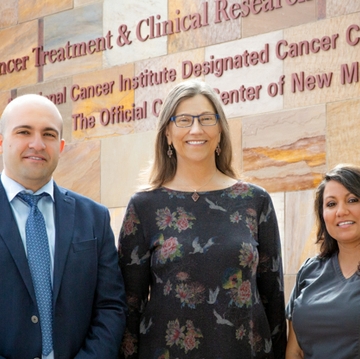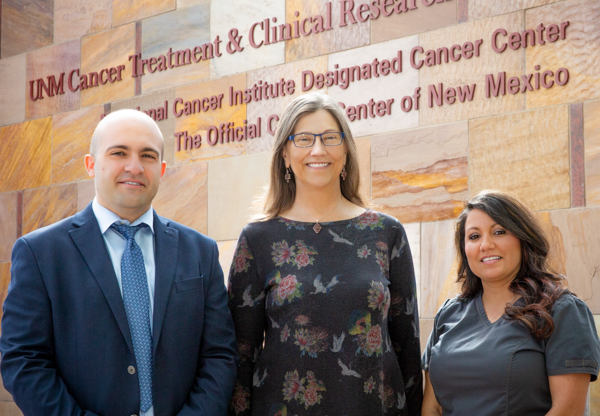UNMCCC earns transportation grants from ACS

Help to Quit
A $500,000 grant supports new treatment program to help UNM Cancer Center patients stop smoking
Smoking is a notoriously difficult habit to break. To make matters worse, it diminishes the effectiveness of cancer treatment.
A new initiative at The University of New Mexico Comprehensive Cancer Center will offer cancer patients the tools they need to beat their addiction.
"We want to make sure that [our patients] get the highest benefit from their treatment," says Emrullah Yilmaz, MD, PhD, who leads the Head and Neck Cancers team. "Quitting improves the outcome from the treatment."
Yilmaz is co-leading the center's new Smoking Cessation program using a $500,000 grant from the National Cancer Institute.
"This program will become part of patients' treatment," Yilmaz says.
The program will follow national guidelines that are based on studies of helping people to quit smoking. Yilmaz and his team will start by offering services to people with head and neck cancers and then expand over the next two years to include everyone treated at UNM Cancer Center.
Linda Cook, PhD, serves as the program's scientific lead. An expert in epidemiology, she leads the Cancer Control Research Program at UNM Cancer Center and focuses on the systems to track how well the Smoking Cessation program works.
Cook stresses that the program serves patients, not research. "Everyone with cancer who smokes will improve their surgical, chemotherapy and radiation outcomes if they quit," she says. "It does not matter if smoking caused their cancer or not."
Currently, patients get information about quitting, but often, that isn't enough. "They need help and follow-up," Yilmaz says. "It's very challenging to leave a habit they've had for many years, so we will make sure that we follow up with these patients in our clinic."
Medical assistant Antoinette Quintana recently joined the UNM Cancer Center team to serve as the program's Tobacco Cessation Specialist. Under Yilmaz's oversight, she will guide and support the people in the Smoking Cessation program as they quit.
Yilmaz and Quintana have several different ways to help people with cancer quit smoking. Yilmaz can prescribe behavioral and lifestyle changes, nicotine patches or medication.
In her follow-up, Quintana can assess how well each person responds. And if one method doesn't work, Yilmaz says his team will help that person change to a different method. "We won't leave the patients on their own."
As they launch the Smoking Cessation program, Yilmaz and Cook meet regularly with people from the other 41 cancer centers in the NCI's Cancer Center Cessation Initiative, better known as C3I. The NCI launched C3I in 2017 as part of the NCI Cancer Moonshot℠ program. Some centers in the C3I are launching their programs, while others are improving their established programs.
In the C3I meetings, Yilmaz and Cook get advice and resources to help in setting guidelines for the UNM Cancer Center program. "Everybody learns from each other," says Cook. "It's a really nice model."
The C3I funding for the UNM Cancer Center's Smoking Cessation program lasts two years. After that, say Yilmaz and Cook, the UNM Cancer Center will support the program because "it's the right thing to do."
The Smoking Cessation program at the UNM Comprehensive Cancer Center is supported by the National Cancer Institute of the National Institutes of Health under Award Number NIH/NCI 3P30CA118100-13S6, Principal Investigator: Cheryl Willman, MD. Amount: $491,979. The content of this publication is solely the responsibility of the authors and does not necessarily represent the official views of the National Institutes of Health.
